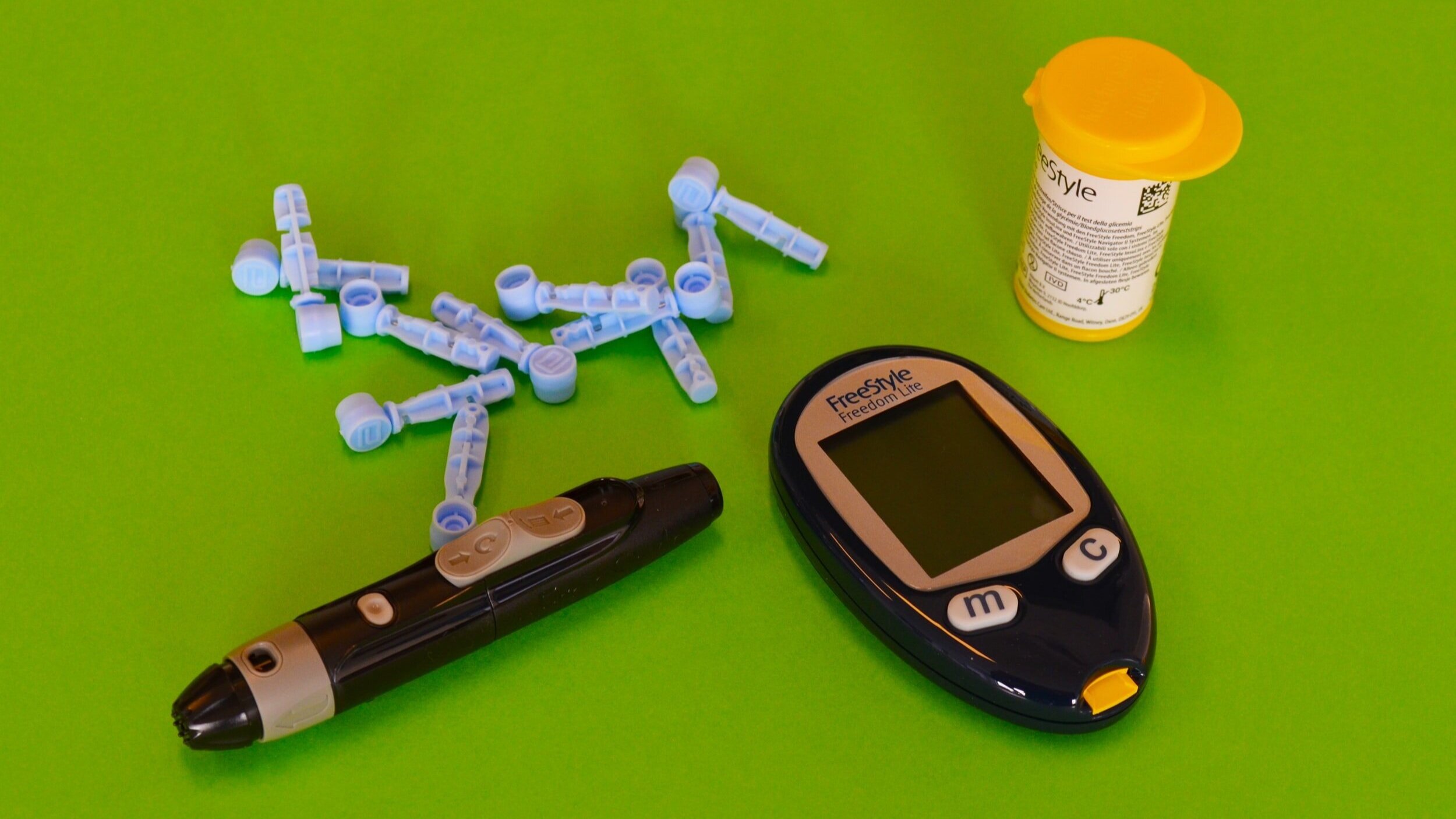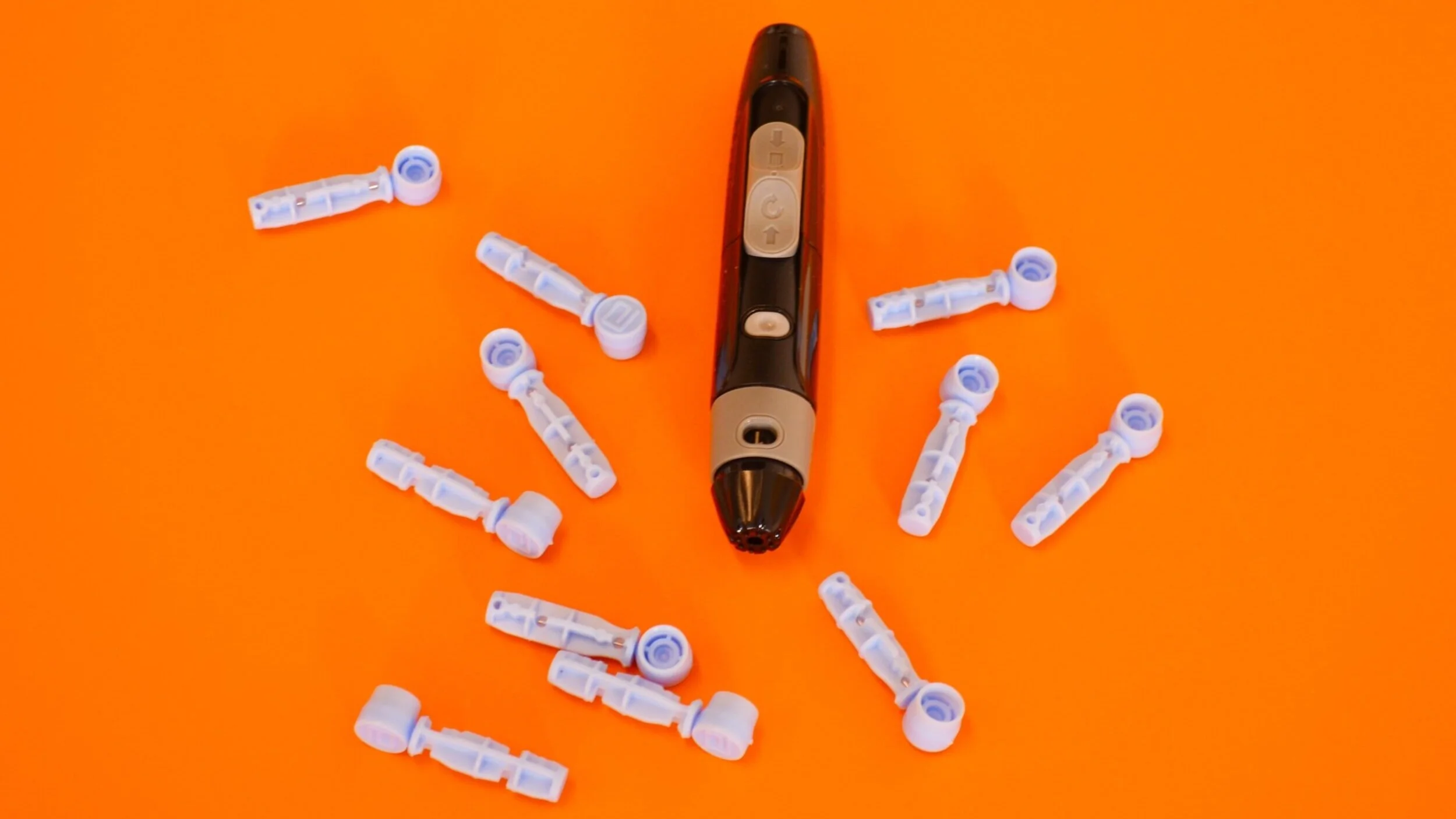Are Diabetic Test Strips Covered By Insurance?
While a growing number of people with diabetes are switching to CGMs (continuous glucose meters), many still use diabetic test strips.
In the past, they typically depended upon conventional finger stick test strips and glucose meters.
These days, diabetics have to spend a great deal of cash to utilize these essential devices.
Quite often, they have many questions regarding the true value of what they’re receiving. What do diabetic test strips tell us about managing diabetes? How accurate are their readings?
Furthermore, what makes them so expensive?
With the cost of insulin being all the rage in the media these days, other diabetic supplies are a huge financial burden as well.
Studies show that about 28 percent of the costs for diabetic supplies are for the self-checking of glucose. This includes test strips and meters.
In fact, about 39 percent of diabetics in North America (and 32 percent globally) have tried to ration diabetic test strips, lancets, meters, and CGMs in order to save more money.
What is the purpose of diabetic test strips?
Let’s start with the essentials: Blood glucose meters and test strips allow people with diabetes to check their blood sugar levels anywhere, whether it be at home or on the road.
First created in 1965, they were utilized in hospitals. Meters and test strips became widely available for diabetics in the 1980s.
To check your blood sugar, you must insert the testing strip into the meter and apply a drop of blood (diabetic lancets are what prick the finger).
Diabetic meters produce a reading almost instantaneously. The meter can store the reading for later review by either the person with diabetes or the doctor.
Meters and strips are virtually essential for those with diabetes.
That includes about 30 percent of those with Type-1 diabetes who use CGM’s (continuous glucose meters), who should prick their finger once in a while to reset their meters and receive a more accurate result.
How do diabetic test strips work?
If you are diabetic, you probably know what you need to do: You put the test strip into the meter, prick one of your fingers with a lancet to draw blood, and then you put the blood onto the tip of the test strip.
Interestingly, the science behind diabetic testing strips is pretty complicated.
They are made up of 5 different layers, including a layer of gold which helps conduct an electric current that interacts with your glucose to produce a reading.
Perhaps that’s why they’re so darn expensive.
How accurate are diabetic test strips?
This question has proven to be a subject of controversy over the years.
This is because certain brands of strips and meters have demonstrated to be more precise than others.
There are also concerns about the precision of the models used over the years, which have not been tested for exactness since their original FDA approval.
A non-profit from California called Diabetes Technology Society (DTS) recently conducted a study in which they took 18 mainstream blood glucose meters and contrasted their outcomes with those of outside labs that tried similar blood examples.
According to the Diabetes Technology Society, test strips and meters blood glucose readings should be inside about 16 percent or 16 mg/dl of laboratory value at least 94 percent of the time.
In recent investigations, just six brands finished that assessment for exactness:
Bayer Contour Next – 100%
Accu-Chek Aviva Plus from Roche – 98%
Walmart ReliOn Confirm (Micro) from Arkray – 97%
CVS/drug store Advanced from Agamatrix – 97%
Free-form Lite from Abbott – 96%
Accu-Chek SmartView from Roche – 95%
This concludes that there are numerous brands of diabetic test strips that do not meet the Diabetes Technology Society’s standards.
No need to stress: Most popular brands of diabetic test strips provide a result that is within 20 percent of lab values, therefore, they will not harm you in any way (unless you require very precise insulin dosing).
However, the accuracy of results and the price of the diabetic test strips should be considered in deciding which brand to go with.
Are you able to purchase diabetic test strips over the counter?
Yes, diabetic test strips can be purchased over the counter, with or without a prescription. This is the reason why you are able to resell them (anything bought over the counter can be resold).
Is a prescription needed when buying diabetic test strips?
Again, a prescription is not needed. You can walk into any store or visit any website that sells them and purchase them.
However, a prescription might be needed to buy certain brands of diabetic test strips with insurance.
Are diabetic test strips covered by insurance?
Test strips are covered by Medicare, Medicaid, and most insurance companies. However, most diabetics get their testing strips through insurance.
Even with insurance though, test strips are still typically expensive.
In the event that you have a high deductible health plan, you may need to follow through on over-the-counter costs for test strips and insulin.
Additionally, your healthcare may not cover the brand of test strips desired. Numerous protection plans put explicit "liked" brands of meters and test strips at the top of their list. This implies that brands not on those lists will cost significantly more.
This can be problematic for diabetics who need certain meters to send readings to their insulin pumps. Problems may also arise if you switch insurance companies and dislike the test strips and meters covered within their plans.
If you are in a situation such as the one stated above, your healthcare physician may be able to assist you. They can do this by getting an inclusion for diabetic supplies by composing a "letter of clinical need" to the insurance agency.
What do glucose test strips cost?
The best answer to this question is, it depends! Some generic brands can be as inexpensive as $20, while others are well over $100. Again, keep in mind that some diabetics may need more accurate readings for their insulin usage.
However, diabetic test strips can be rather expensive. This is especially true when you are required to test multiple times a day (hence, using multiple strips a day).
OneTouch Ultra: about $1 per strip
Accu-Chek Aviva Plus: about $.90 per strip
Bayer Contour: about $.50 per strip
FreeStyle Lite: about $1 per strip
True Metrix: about $.95 per strip
CVS/drug store Advanced: about $1.80 per strip
Who has the cheapest test strips?
Prodigy test strips cost about $.18 a strip at the time of this writing. November 5th, 2020.
Does Medicare or Medicaid pay for test strips and other supplies?
Yes, Medicare and Medicaid typically cover test strips and meters. Note, if you receive test strips through either one of these government programs, they are illegal to resell. You cannot legally profit from government programs.
Is it advisable to use test strips past the expiration date?
The shelf life for most diabetic test strips is 18-24 months, all expiration dates are shown on the boxes.
While there is no concrete evidence on whether or not test strips can be used past their expiration, it is generally advisable not to. Expired test strips cannot be sold legally.
What should you do with your unused test strips?
Donate them or sell them! By selling them, you not only help reduce waste, you also get paid! At Diabetic Exchange USA, we pay up to $63 per box for diabetic test strips. Start selling today!
Is it legal to sell diabetic test strips and other diabetic supplies?
Yes! There's no law against buying and selling diabetic test strips, lancets, and CGMs.
At Diabetic Exchange USA (the author of this article), we make it easy to sell diabetic test strips, lancets, and CGMs. You can receive a free shipping label or shipping kit to sell your supplies to us hassle-free!
All content within this blog post is strictly informational and should not be taken as medical advice.
Diabetic Exchange USA
Diabetic Exchange USA is the leading buyer of diabetic supplies. If you’ve made it this far, you may want to consider selling your extra diabetic test strips, lancets, or CGMs. Similar to donating blood, some people are in need of diabetic supplies.
Instead of throwing your diabetic supplies in the trash, sell them to us and get paid! We provide pharmaceutical products to those who can’t afford the over-inflated retail prices.




